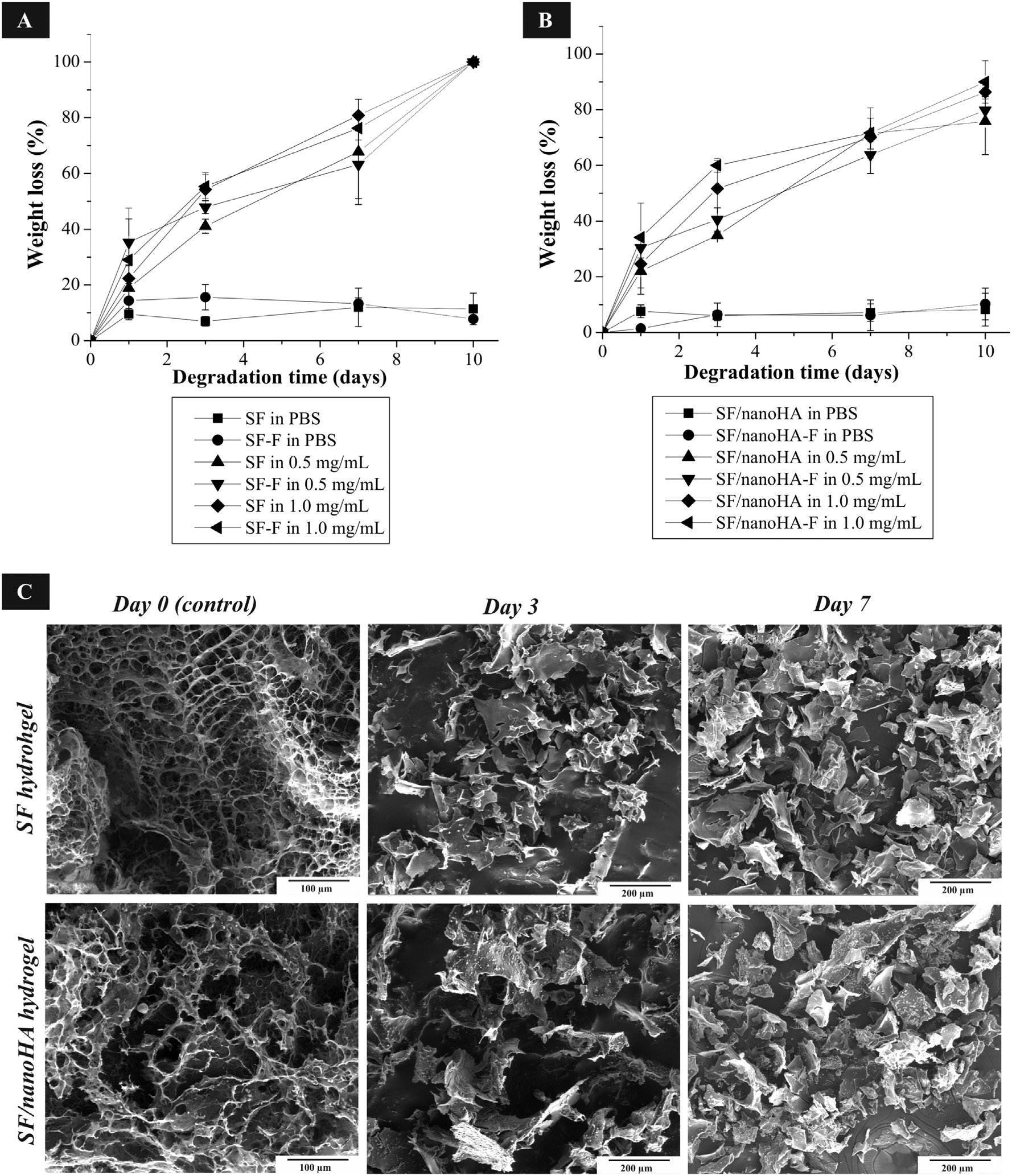|
可提高生物活性SF/nHA水凝胶促进hBMSCs成骨分化及增殖
Materials Science & Engineering C 89 (2018) 336–345 蚕丝蛋白(SF)是一种天然的、生物相容的可生物降解高分子,具有良好的骨组织缺损修复性能。来自波尔图大学的Ribeiro等利用纳米羟基磷灰石(nHA)混合SF制备了一种生物活性复合水凝胶作为骨植入物。评估了SF/nHA复合水凝胶的降解性能以及生物活性。另外,生物实验表征了人骨髓间充质干细胞向成骨细胞分化及增殖的能力。nHA与SF复合水凝胶提高了水凝胶的生物活性。生物表征结果表明SF/nHA复合水凝胶适合于hBMSCs的粘附及增殖,同时检测碱性磷酸酶(ALP)及骨形态发生蛋白2(BMP2)的表达结果表明了成骨细胞的分化程度。另外,ALP染色结果可观察到细胞浸润及ALP的产生,为骨组织再生中复合水凝胶的应用做好了铺垫。 Silk fibroin (SF) is a natural, biocompatible, and biodegradable polymer having a great potential for the successful regeneration of damaged bone tissue. Ribeiro et al. from Universidade do Porto developed a bone implant utilizing nanohydroxyapatite (nanoHA) incorporated into SF polymer to form a bioactive composite hydrogel. The degradation and bioactive properties of SF/nanoHA composite hydrogels were evaluated. Additionally, biological investigations of human bone marrow stromal cells (hBMSCs) viability, proliferation and differentiation to the osteoblastic phenotype were conducted. The incorporation of nanoHA in SF polymer matrices improved the bioactivity of the hydrogels. The biological results highlighted that the SF/nanoHA composite hydrogels are suitable for hBMSCs attachment and proliferation, while a test for alkaline phosphatase (ALP) and bone morphogenetic protein 2 (BMP-2) expression suggested osteoblast differentiation. Additionally, a cell staining method for ALP allowed to observe cell infiltration with active production of ALP by the infiltrated cells, paving the way to use the proposed composite hydrogel for bone tissue regeneration. (莫莉)
|
